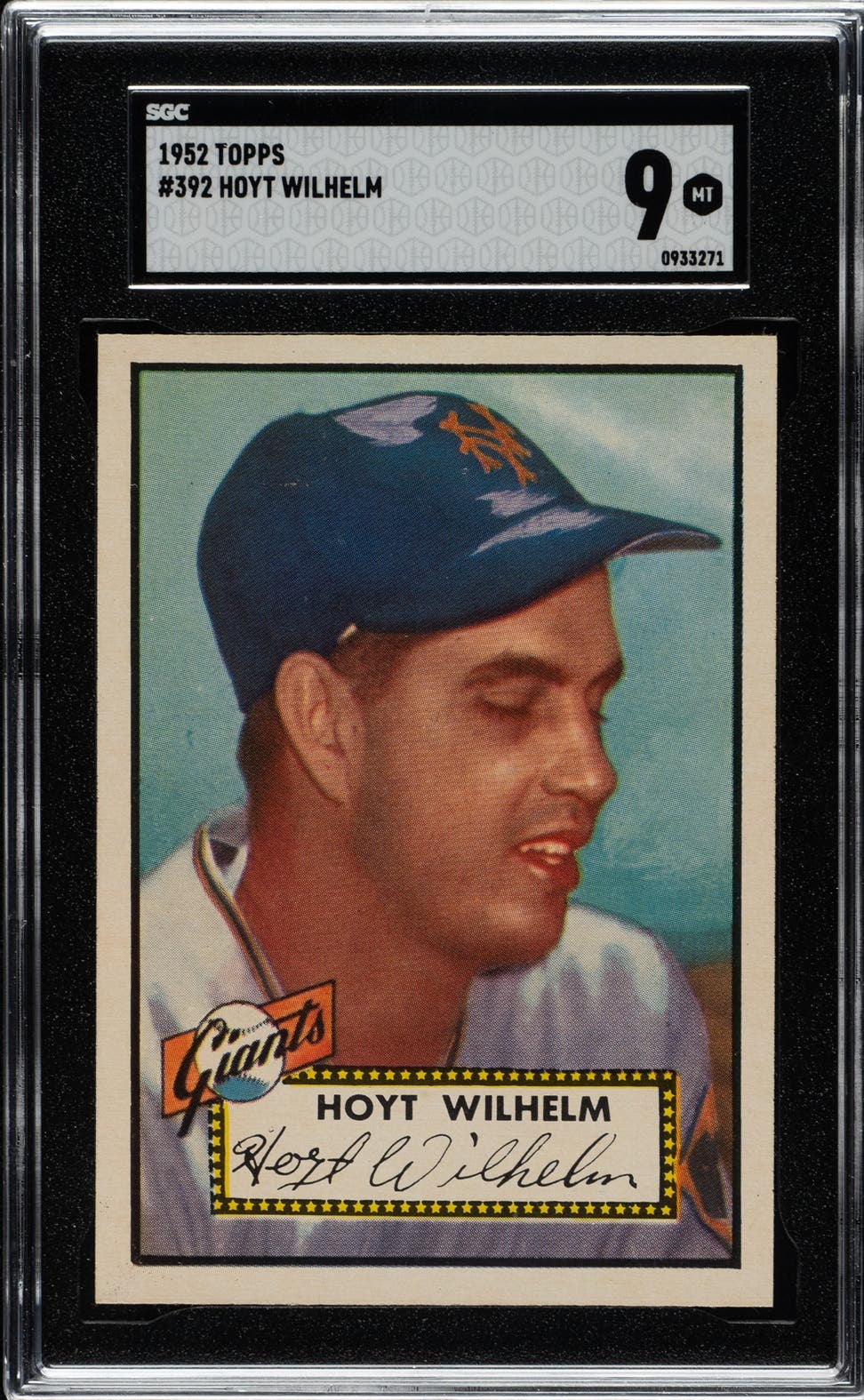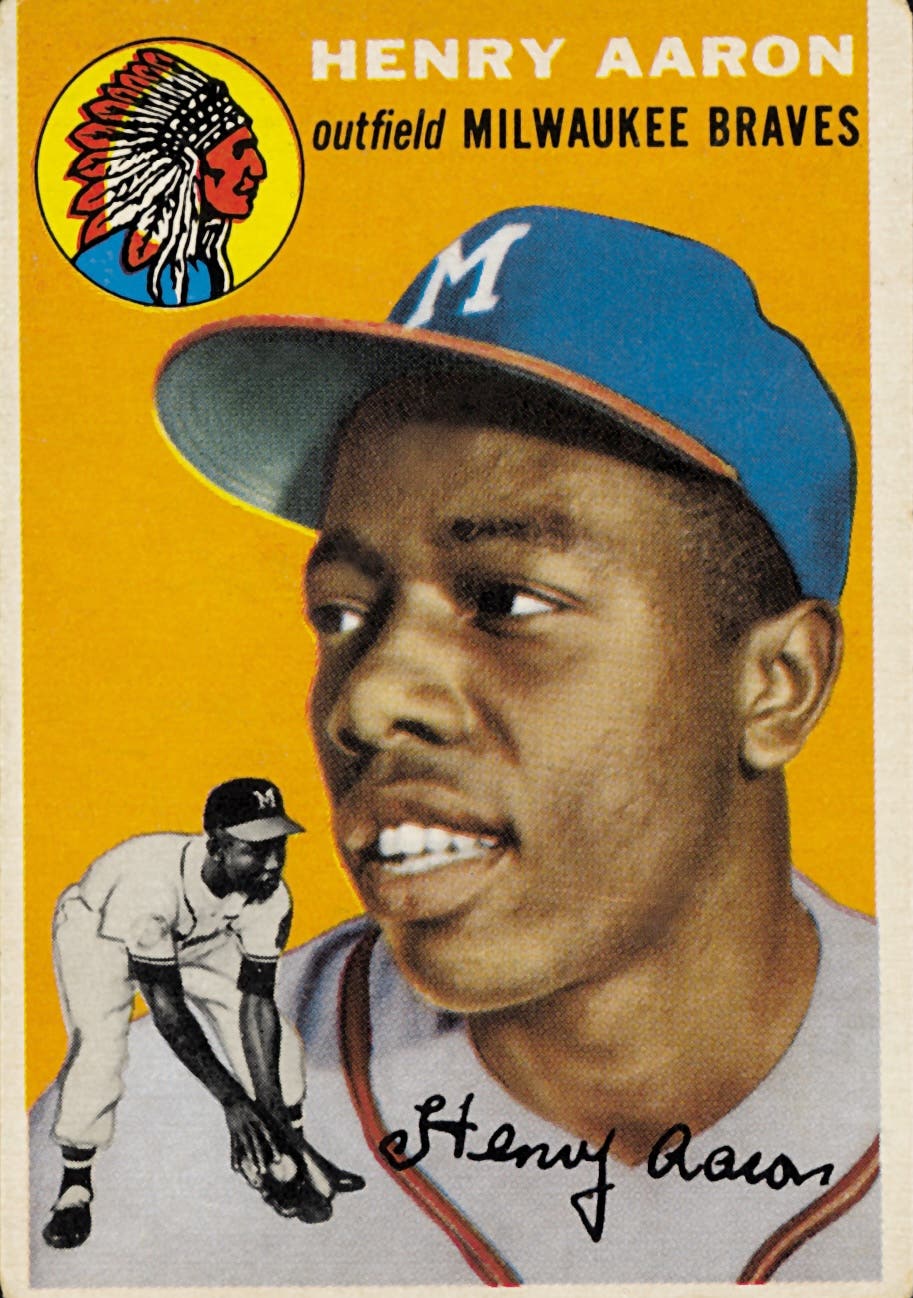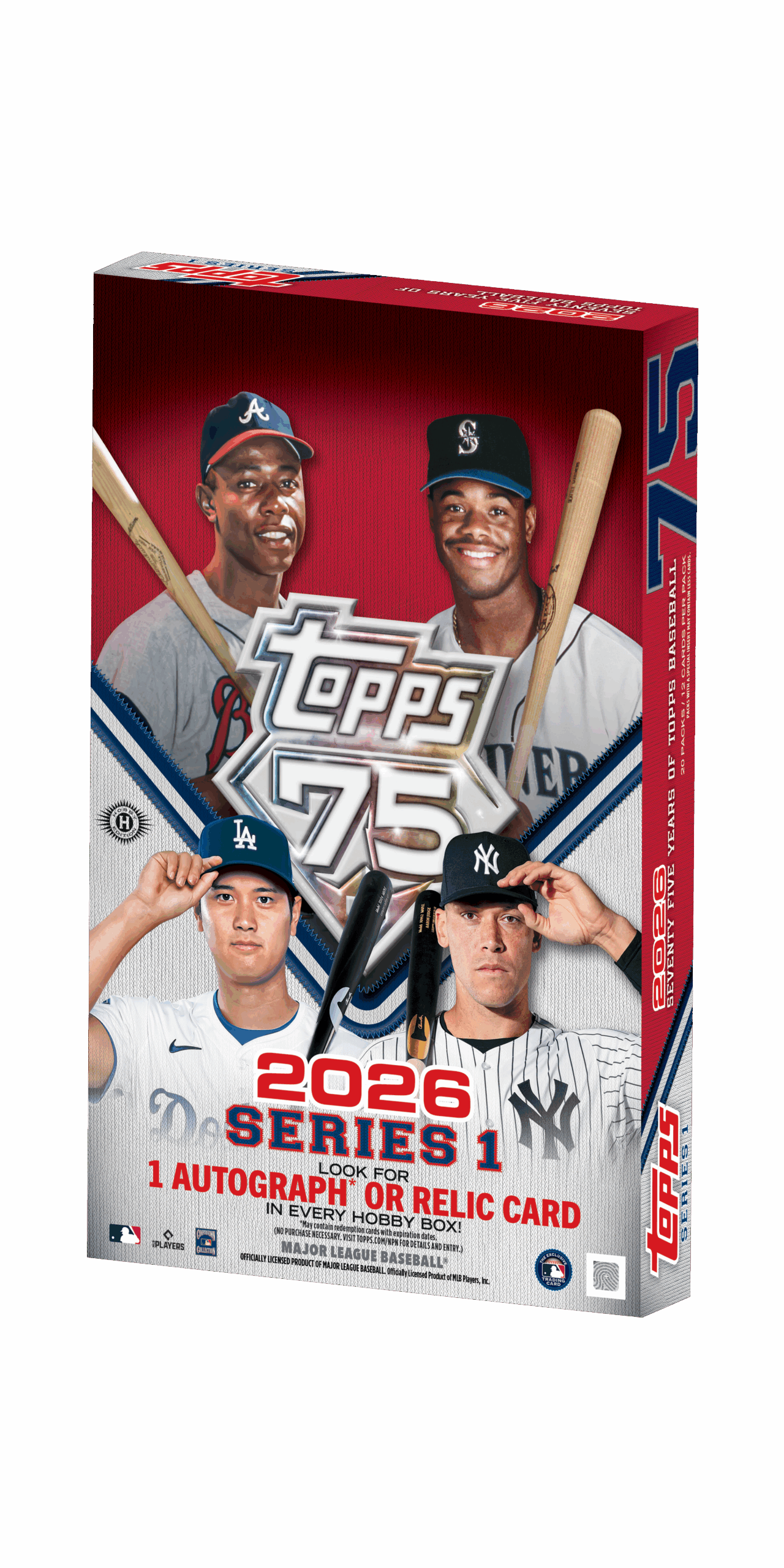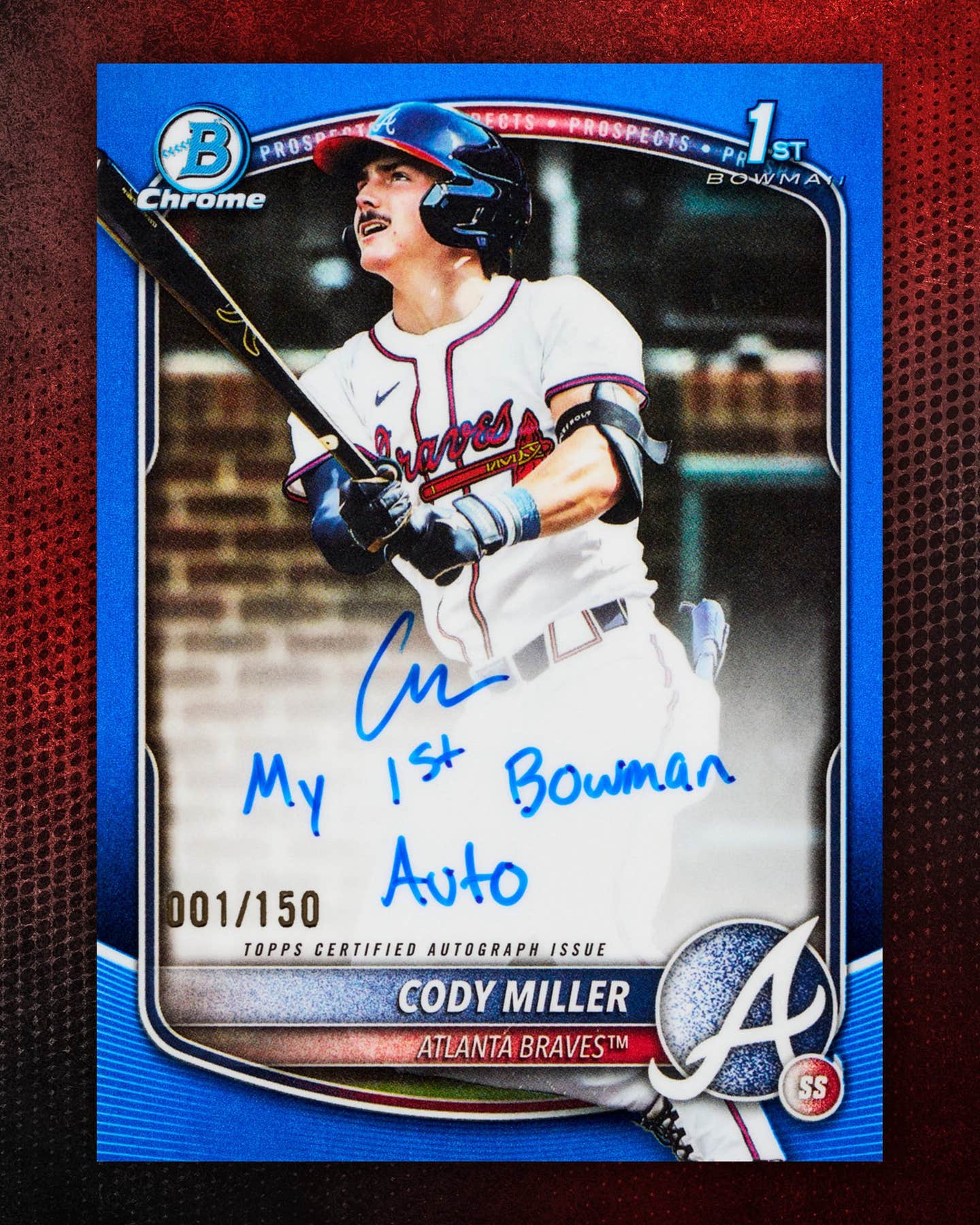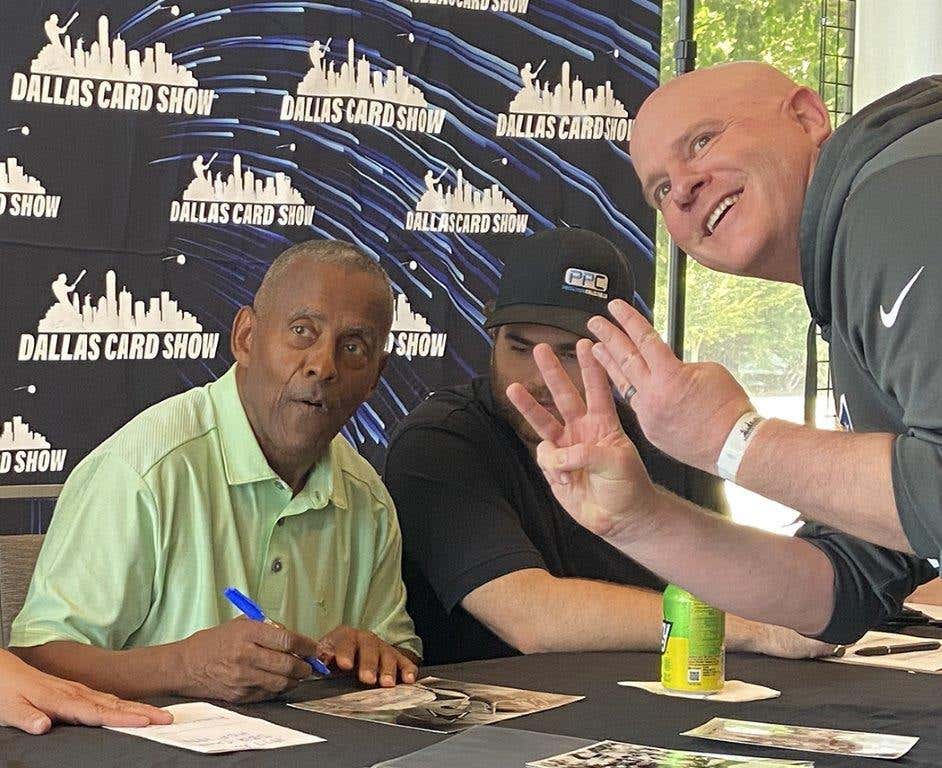News
Ken Griffey Sr. Talks About the Career of His HOF Son
By David Moriah
When Ken Griffey Jr. and Mike Piazza were first introduced to the world as the newest members of the Baseball Hall of Fame at a press conference at the New York Athletic Club on Jan. 7, there was one very proud Papa in the audience.
Ken Griffey Sr., owner of his own outstanding 19-year major league career featuring three All-Star appearances and a lifetime .296 average, was on hand to witness his son’s triumphant moment. As reporters clustered around Junior and Piazza, this SCD scribe noticed the elder Griffey observing the hubbub from the sidelines and approached him to get his reactions to the day and his memories of father and son’s respective careers.
Griffey Sr. was eager to oblige, and pretty soon the stories began to flow. Some of the best tales related to the brief period when the elder Griffey, in the twilight of his career, played on the same Seattle Mariners team as his son, just beginning his illustrious 22-year run in the major leagues.
“That’s when I realized he was a Hall of Fame player,” remarked Senior, “because of how much ground he could cover, what kind of arm he had. He didn’t make any mistakes.
“He covered so much ground and he did it so smoothly. I watched Willie Mays do the same thing, and he was so smooth, and I played with (Cesar) Geronimo and he was smooth in the outfield, but Junior was only 19, 20 years old and he could do that.”
He went on to tell of how they carved up the outfield territory when they played side-by-side in center and left fields.
“I said, ‘This is what’s gonna happen, son. I’m covering three square feet on the left field line, and everything else is yours.’ And he covered it!”
The most memorable, and historic, father-son moment of all came on Sept. 14, 1990. Playing in Anaheim against the Angels, Senior powered a home run to left-center field and Junior followed with a dinger to almost the same spot. It was the one and only time in baseball history that father and son have connected for back-to-back home runs.
Junior spoke of it during his opening statement at the press conference.
“Being 20, when I shook his hand, he was like, ‘You know what we did?’
“I was like, ‘Yeah, we went back-to-back.’ Like every other 20-year-old, it was like no big deal.
“He was like, ‘Yeah, we just went back-to-back. Nobody’s ever done that. Now let’s do it again.’
“He understood the history of the game, being 38, 39, where I was just like, ‘I’m ready to play every day.’”
When asked if his son’s recollection matched his own, Senior recalled it differently.
“Junior remembers it a different way. You know, you can’t trust kids!
“When I crossed the plate, I looked in his eyes and I thought, ‘He has something totally different about him.’ His demeanor had changed. He went from grinning to ‘I’m serious about this.’
“He knew more about this back-to-back thing than I did, because I didn’t even think about it. The pressure was really on him because he had to hit the second one.”
And what became of the bat, the ball, and other souvenirs from the historic event?
“I don’t have anything from it,” lamented Senior. “He (Junior) took everything! Him and the clubhouse guy were in cahoots. Henry, the clubhouse guy, gave everything to Junior, and he gave some other uniforms and stuff to the Hall of Fame, I guess.
“They even took my bat! I’m looking for my bat and I don’t even have my bat! It was gone! It disappeared on me. Even my shoes were gone!”
A call to the Hall of Fame uncovered some surprising information – there are no artifacts from the historic father-son back-to-back game in the Hall’s voluminous collection.
Father and son could also be competitive with each other. Take the question of which of the two made the most spectacular outfield catch during their combined 41 years in the big leagues.
At the press conference, Junior staked out his claim.
“Having a dad who played, his catch in Yankee Stadium, I think it was Marty Barrett who hit it. We argue all the time whose catch was better. I say my catch was better, or he’ll say his catch was better. I will say my dismount and landing was a little better than his.
“But all the practice that you do as a little kid, running up my mom’s wall, throwing the ball up against the wall, trying to make a catch like that . . . Those are things that you practice.
“It was the very first time that I ever robbed somebody on any level. In Cincinnati (growing up), we didn’t have fences . . . I didn’t play with fences till I got to summer ball, then eventually pro ball. So more or less I was laughing because it was the very first time that I’ve ever robbed somebody in all the years, from being three climbing up my mom’s wall till now, it was the first time I ever robbed somebody.’
“My dad has always told me, ‘When you hit, if you hit a home run, you can’t really embarrass that person. He knows he made a mistake. Just get around the bases, let the next guy hit.’ Baseball has a way of policing itself. But on defense you can show a little more of your character and spirit. Being able to dive, rob somebody of a home run, it’s not really showing somebody up if you come in laughing, not really laughing, but showing a little bit of enthusiasm about what you did compared to hitting a home run and running around and doing it that way.”
Now let’s hear the father’s case for his owning the better snag.
“Well, his catch didn’t mean nothing,” Senior explained. “Think about it. My catch won the game.
“I was 37; he was 19. Now you tell me which catch was better. It took me two-and-a-half weeks before I could get up and walk. It took him five seconds. That’s why his dismount was better. Rickey (Henderson) laughed so hard, he said, ‘That dismount was horrible!’
“But I caught the ball and we won the game,” Senior concluded with pride.
For Junior, it was a remarkable break out of the gate as a teenager – No. 1 draft choice, fast-tracked to the big leagues after only 129 minor league appearances, and being promoted as the face of the splashy launch of Upper Deck trading cards as card #1 in the 1989 set. That inaugural 1989 set arguably ushered in the modern era of baseball cards as an investment, and today there have been more than 100,000 Upper Deck Griffey rookie cards submitted for grading.
For most young men, it would be an almost impossible challenge to stay calm, centered and focused on the game of baseball in the midst of all the hoopla.
“I wasn’t too concerned about it because he had a good raising,” Senior remarked. “I’ll be honest with you, his mother did a helluva job. She kept him real evenly keeled about what he needed to do and how to handle himself. When it got to a point where he had a lot of pressure on him, he would call me and we’d talk about it.”
When the Mariners chose Junior as their No. 1 pick in the 1987 draft, Seattle was a rather sleepy baseball town. The Mariners hadn’t had a winning record in their first 10 seasons and they played in the roundly reviled Kingdome, an indoor arena built primarily for football.
“You look at the first seven years in Seattle and they didn’t even have (games on) television,” Senior pointed out. “They just had radio. But after people started talking about ‘The Kid,’ three years later they had a TV contract. Everyone wanted to know more about him.”
Senior recounts one particular incident from the days when “Griffey-mania” swept Seattle.
“There was a time when he was with his girlfriend, who’s now his wife, at a mall in Seattle, and she said ‘I’m going to call your name out. You ain’t that important!’ He said, ‘Don’t do that. Please don’t do that.’
“Well, Melissa hollered his name out and nine million little kids came out of nowhere and ran right over her. They all had ink pens and he had to sign for them all the way out of the mall!”
After spinning all the tales about his Hall of Fame son, Senior summed up just what the Hall of Fame election meant to him as a father.
“It’s just a proud day for me being a proud father. The biggest thing is how he handled himself the whole time. He played through the steroid era and he just went about his business. The last five years of his career what was most important was all the injuries he went through in Cincinnati. A lot of people don’t know that those injuries stopped him from, well, he could have been the first player to hit 900 home runs.
“But that’s all hindsight. It’s all about how he handled himself, and he still ended up hitting 600 home runs.”
It was 630 home runs to be exact, and the highest percentage vote ever recorded in a Hall of Fame election. Now that’s reason enough for being a proud papa!
David Moriah is a regular contributor to SCD. He can be reached at dmoriah@aol.com.




